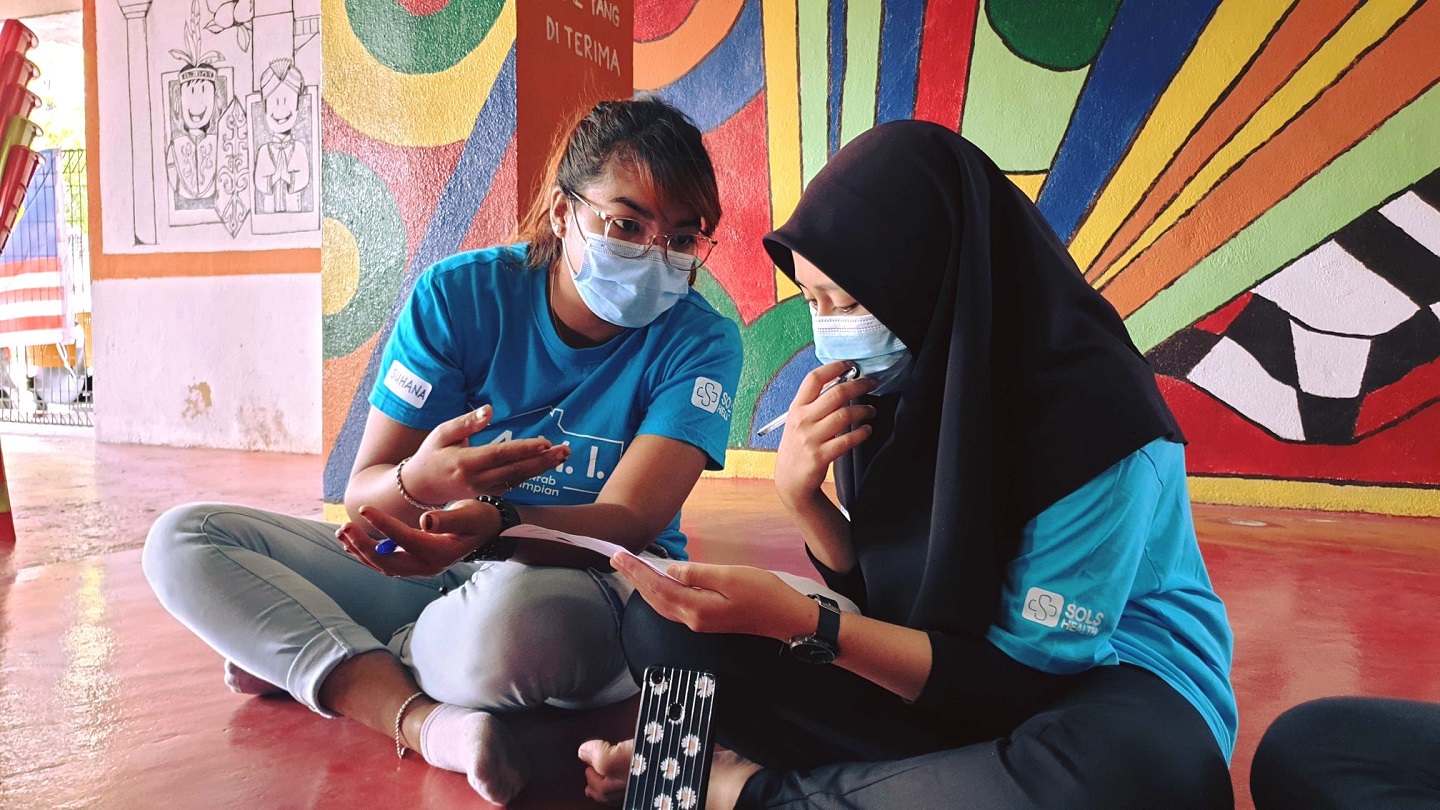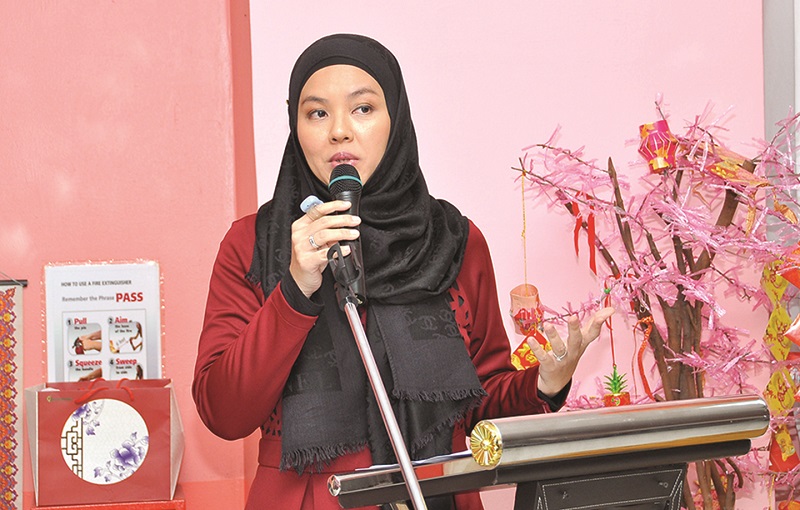
Sols Health a non-profit community mental health centre that connects the public to accessible mental health services (Photo: Sols Health)
It has been a little over a year since the government implemented a complete restriction of movement and assembly nationwide. Although more lenient variations were later introduced, the initial Movement Control Order (MCO) was necessary to contain the spread of Covid-19. And who could forget how those weeks felt like?
Dramatic shifts in lifestyles were made within a short time frame, which inadvertently created a darker social scenery that challenged the mental well-being of many. The cessation of social interaction, sudden unemployment, a ravaged economy, isolation and the fear of being infected by the virus brought about psychosocial distress. An article published by the department of psychological medicine at the University of Malaya in May 2020 noted that a surge in mental health disorders was likely in the wake of the pandemic.
It is one of the reasons clinical psychologist Ellisha Othman believes there is a “parallel pandemic”. “We don’t use that term much in Malaysia, but globally we are calling the deteriorating mental health a parallel pandemic,” says Ellisha, who is managing director of Sols Health, a non-profit community mental health centre that connects the public to accessible mental health services. “Mental health is exacerbated by whatever distressing or difficult environment you are in.”
The MCO can be a trigger for many people, she explains. Due to the strict lockdown, daily routines are disrupted and people are experiencing reduced incomes or loss of jobs. “We need time to adapt. Humans are resilient and we can adapt to change. But when there is a lot of uncertainty, it can affect the way you think about your own ability to accomplish things and your outlook on your future.”
sol.jpg

Being cut off from society also means that distractions are removed and people are focusing more on their problems. “A lot of people with anxiety experience physical manifestations such as sleeping problems, being jittery or perspiring a lot, but they were not aware of it until the pandemic,” says Ellisha. “Because you can’t distract yourself anymore. You can’t say ‘I’ll just go to the mamak stall or go for a run.’” And although the home should feel like a safe haven, it is not the case for victims of domestic violence, which saw a spike during the MCO, according to the Women’s Aid Organisation.
The effects of loneliness should not be taken lightly. In February, Japan appointed a “Minister of Loneliness” in an attempt to reduce loneliness and social isolation after seeing an increase in its suicide rate. At one point in 2020, the country recorded more deaths by suicide than Covid-19. In Malaysia, between the start of the MCO in March and October last year, a total of 266 people died by suicide, equivalent to around 30 cases a month or one a day, according to Relate Malaysia, a non-governmental organisation (NGO) that seeks to destigmatise mental health through education, advocacy, services and training.
The healthcare system is overburdened and at its wits’ end. Resources are still concentrated on managing Covid-19 and only severe mental health cases are prioritised by public healthcare for now. On the other hand, not everyone can afford private healthcare. “The actual cost of the service is very high as it is very customised,” Ellisha says matter-of-factly. That is why NGOs are stepping in to fill the gap. However, there is a shortage of practitioners and trained volunteers. “We have this big surge and we can’t cope. The system can’t support it.”
The same problem is prevalent across many mental health organisations in Malaysia, which is why a community mental health fund was started to raise money to equip volunteers to handle basic mental health education and support. Apart from Sols Health and Relate Malaysia, the Malaysian Mental Health Association (MMHA) and Mental Illness Awareness and Support Association (Miasa) are also involved in this fundraiser, which has a target of RM50,000. Depending on the amount contributed, donors will receive a range of rewards, including a one-month free trial of mental health app ThoughtFull and personalised health coaching app Naluri. At end-April, all the funds collected will be distributed among the four organisations to train more mental health workers.
miasa_founder_and_president_anita_abu_bakar.jpg

“The spectrum of mental health issues is very wide,” says Ellisha. It should not come to a point where it becomes a disorder or illness to be taken seriously. “Many developed countries focus more on preventive services and that is still lacking in Malaysia. We need to invest in the right infrastructure.”
Education is important to destigmatise the issue, but it should not start in the therapy room. Just as maintaining physical health is taught in schools, so should mental health be seen in the same way. “If the teachers, social workers and the police — those who face the public every day — are equipped with basic mental health knowledge, it can help prevent these issues from escalating,” Ellisha points out.
Anita Abu Bakar, president and founder of Miasa, stresses the importance of having a good peer support group. “Many people who are judgemental have never interacted with or known a person with a mental health condition,” she says. “People with lived experience — be it a mental health peer or caregiver —should be involved in the design, planning, delivery and implementation of mental health services and we should have peer support workers in Malaysia in the clinical setting to help. This will tremendously reduce the stigma, as the insights provided can translate into better understanding, treatment and support.”
If you know someone who is struggling with mental health issues, Anita’s advice is to be sensitive. “Please be there to listen to the person and show empathy and compassion. Once trust is built, channel them to the resources available, such as NGOs in the community, helplines, health clinics or hospitals for mental health assessments and intervention.” Miasa’s peer support sessions are a more informal way for people to open up. “We let them share as much or as little as they want at their own pace. Speaking up about our mental health requires a lot of trust and courage,” she says.
Professionals have argued that the mental health effects of the pandemic are most likely to outlive Covid-19. Ellisha warns that there is a price to pay if mental health issues continue to be swept under the rug. “If we don’t invest in improving our mental health infrastructure, there will be a cost, even though it may not be immediate.” If even the most developed countries with successful economies and affluent populations such as Japan are not spared, who is to say that we will be?
Donate to the Community Mental Health Fund here.
This article first appeared on Mar 29, 2021 in The Edge Malaysia.


